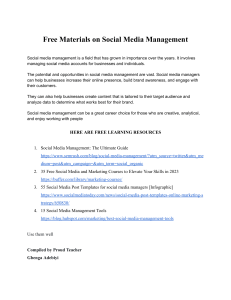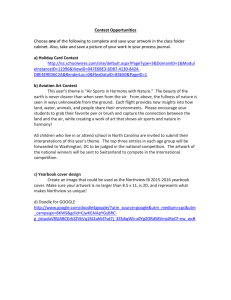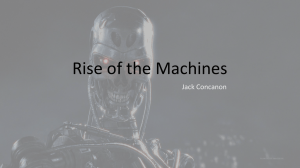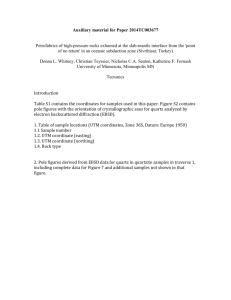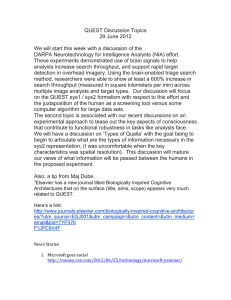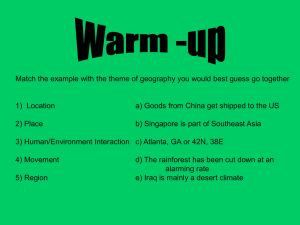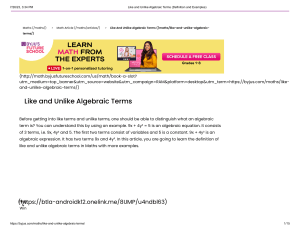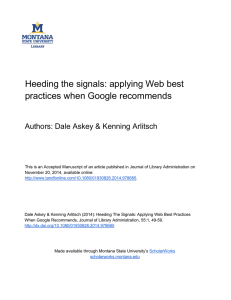information technology in management
advertisement
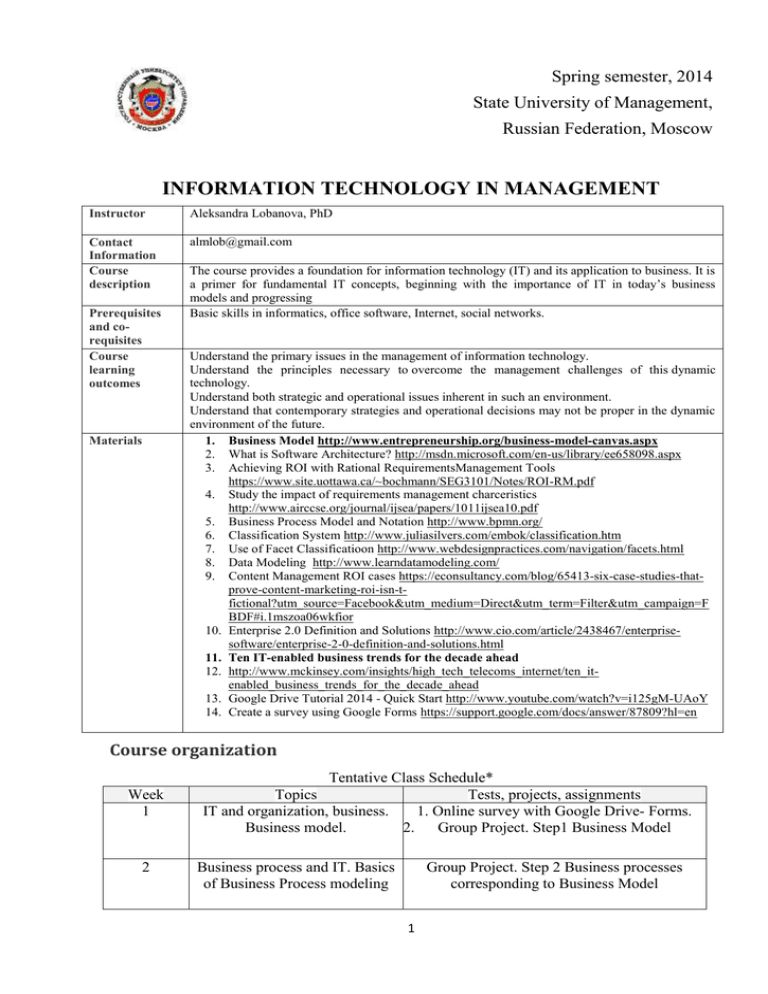
Spring semester, 2014 State University of Management, Russian Federation, Moscow INFORMATION TECHNOLOGY IN MANAGEMENT Instructor Aleksandra Lobanova, PhD Contact Information Course description almlob@gmail.com Prerequisites and corequisites ● Course ● learning outcomes ● ● Materials The course provides a foundation for information technology (IT) and its application to business. It is a primer for fundamental IT concepts, beginning with the importance of IT in today’s business models and progressing Basic skills in informatics, office software, Internet, social networks. Understand the primary issues in the management of information technology. Understand the principles necessary to overcome the management challenges of this dynamic technology. Understand both strategic and operational issues inherent in such an environment. Understand that contemporary strategies and operational decisions may not be proper in the dynamic environment of the future. 1. Business Model http://www.entrepreneurship.org/business-model-canvas.aspx 2. What is Software Architecture? http://msdn.microsoft.com/en-us/library/ee658098.aspx 3. Achieving ROI with Rational RequirementsManagement Tools https://www.site.uottawa.ca/~bochmann/SEG3101/Notes/ROI-RM.pdf 4. Study the impact of requirements management charceristics http://www.airccse.org/journal/ijsea/papers/1011ijsea10.pdf 5. Business Process Model and Notation http://www.bpmn.org/ 6. Classification System http://www.juliasilvers.com/embok/classification.htm 7. Use of Facet Classificatioon http://www.webdesignpractices.com/navigation/facets.html 8. Data Modeling http://www.learndatamodeling.com/ 9. Content Management ROI cases https://econsultancy.com/blog/65413-six-case-studies-thatprove-content-marketing-roi-isn-tfictional?utm_source=Facebook&utm_medium=Direct&utm_term=Filter&utm_campaign=F BDF#i.1mszoa06wkfior 10. Enterprise 2.0 Definition and Solutions http://www.cio.com/article/2438467/enterprisesoftware/enterprise-2-0-definition-and-solutions.html 11. Ten IT-enabled business trends for the decade ahead 12. http://www.mckinsey.com/insights/high_tech_telecoms_internet/ten_itenabled_business_trends_for_the_decade_ahead 13. Google Drive Tutorial 2014 - Quick Start http://www.youtube.com/watch?v=i125gM-UAoY 14. Create a survey using Google Forms https://support.google.com/docs/answer/87809?hl=en Course organization Week 1 2 Tentative Class Schedule* Topics Tests, projects, assignments IT and organization, business. 1. Online survey with Google Drive- Forms. Business model. 2. Group Project. Step1 Business Model Business process and IT. Basics of Business Process modeling Group Project. Step 2 Business processes corresponding to Business Model 1 3 4 5 6 7 Business Software. Information systems in organization. IT architecture. Data, Information, 1. Classification and Coding. Analytics, Business Intelligence 2. Data. Database. Networks. Internet. Web2.0 for organization, business. The Internet of Things (IoT) Information Security Group Project. Step 3 Software Architecture corresponding to Business Model Group Project. Step 4 Business Requirement Document Excel (or another Spreadsheet calculations) Group Project. Step 5 Data corresponding to Business Model Test Group Project. Step 6 Internet and Web2.0 instruments corresponding to Business Model Group Project. Step 6 Information Security issues *Note: this table shows only the "tentative" schedule. The schedule may be the subject for change. Individual Project About 15-20 slides (or equivalents) in Prezi.com 1. 2. 3. 4. 5. 6. 7. 8. 9. 10. 11. 12. 13. 14. 15. 16. 17. Requirements Management Usability Testing Cloud computing Government -to- citizen (G2C) Content Marketing Social Media Analytics Tools ERP CRM SCM BPMS Business Intelligence (BI) Web 2.0 Collaboration Resources Web 2.0 Cooperation Resources IT for HR Project Management and Project Communication Tools IT and Ethics E-commerce If the list doesn’t include the topic the student wants to search and present, the student can propose his or her topic and get the approval from the professor. Evaluation and grading policy Type of work Percentage Classroom Participation 20% In-class group Project Presentation 20% In-class personal Project Presentation 20% Test 20% Final Examination (Final Test) 20% 2 * Grade system of State University of Management, Moscow, Russia: 5 – excellent, 4 – good, 3 – average, 2 – below average (not enough to pass the test). Link to first acquaintance form: https://docs.google.com/forms/d/1lKiKPzCulwtBbgI56F2rsW4I4BG3_DXJE0n1mxHVSc/viewform?usp=send_form Course policies and expectations Describe rules you would like students to follow during class hours or any additional information for example on the following topics: Expectations on classroom conduct and decorum (e.g. cell phones and computer usage, food and beverages, etc.) Respect for others, respectful language Active participation during discussions Lateness or absences A policy for students who are disagree with grading decision Etc. 3


